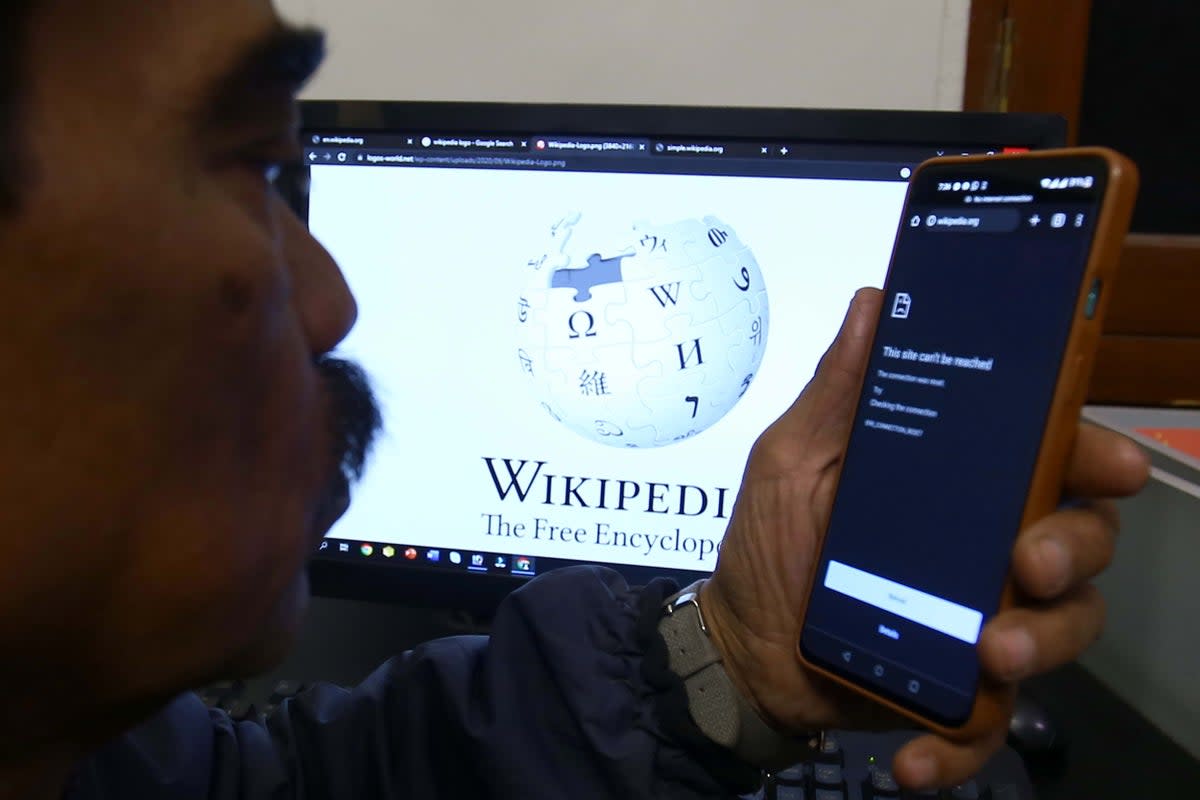Pakistan blocks access to Wikipedia over ‘blasphemous’ content

Pakistan has banned Wikipedia after the encyclopedia failed to comply with orders to take down blasphemous content.
In a statement this week, the Pakistan Telecommunication Authority (PTA) said that it had degraded Wikipedia’s services in the country on “account of not blocking or removing sacrilegious content”.
“Wikipedia was approached for blocking/removal of the said contents by issuing a notice under applicable law & court order[s]. An opportunity of hearing was also provided, however, the platform neither complied by removing the blasphemous content nor appeared before the Authority,” the statement said.
PTA spokesperson Malahat Obaid said the ban had primarily been imposed for non-compliance with the orders, reported Dawn News.
“The decision can be reviewed once Wikipedia removes sacrilegious content that has been identified by the regulatory authority,” he was quoted as saying.
Neither statement specified which content the authorities had ordered Wikipedia to remove.
Wikipedia was approached for blocking/removal of the said contents by issuing a notice under applicable law & court order(s). An opportunity of hearing was also provided, however, the platform neither complied by removing the blasphemous content nor appeared before the Authority. pic.twitter.com/6dWRcbxHGB
— PTA (@PTAofficialpk) February 1, 2023
The Wikimedia Foundation, the charity that runs Wikipedia, said that it does not make decisions on content included on the site.
“We believe that access to knowledge is a human right. A block of Wikipedia in Pakistan denies the 5th most populous nation in the world access to the largest free knowledge repository. If it continues, it will also deprive everyone access to Pakistan’s history and culture.
We hope that the Pakistan government joins us in a commitment to knowledge as a human right and restores access to @Wikipedia and Wikimedia projects promptly, so that the people of Pakistan can continue to receive and share knowledge with the world. (4/4)https://t.co/8xM73if9B2
— Wikimedia Foundation (@Wikimedia) February 4, 2023
“We hope that the Pakistan government joins us in a commitment to knowledge as a human right and restores access to Wikipedia and Wikimedia projects promptly, so that the people of Pakistan can continue to receive and share knowledge with the world,” it said.
The move by the Shehbaz Sharif government has received criticism from activists in the country who have called it the latest assault on free speech.
The ban is disproportionate, unconstitutional, and quite ridiculous. This will impact students, academia, the healthcare sector, researchers, and downgrade investor confidence in Pakistan due to the uncertainty & arbitrariness of censorship.
Spoke to AFP: https://t.co/urr5bC9v3M— Usama Khilji (@UsamaKhilji) February 3, 2023
“The ban is disproportionate, unconstitutional, and quite ridiculous. This will impact students, academia, the healthcare sector, researchers, and downgrade investor confidence in Pakistan due to the uncertainty & arbitrariness of censorship,” said digital rights activist Usama Khilji to Agence-France Presse.
Pakistan Ranks 118th in Median internet speed (went down 4 places), India ranks 79 (went up 26 places)
PTA rather than doing its job bans Wikipedia. #Priorities pic.twitter.com/l9hZungaUq— Ali Moeen Nawazish (@am_nawazish) February 4, 2023
DRF strongly condemns the downgrading of access to Wikipedia in Pakistan. The PTA has 'degraded' access to Wikipedia for 48 hours with the possibility of completely banning the platform if it does not comply with their requests. #SaveWikipedia pic.twitter.com/ovaHiJscw0
— Digital Rights Foundation (@DigitalRightsPK) February 3, 2023
More censorship in South Asia, this time from Pakistan.
Folks, blasphemy should be utterly and totally legal. Your offense should never translate into restrictions on knowledge, much less into criminalizing other views.https://t.co/1sxomcLDlR #Blasphemy #Pakistan #Censorship— Dr. Audrey Truschke (@AudreyTruschke) February 4, 2023
Earlier in 2020, the PTA issued notices to Wikipedia and Google for “disseminating sacrilegious content”. The country was also blocked from accessing YouTube between 2012 and 2016.


